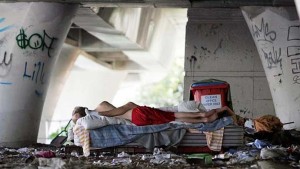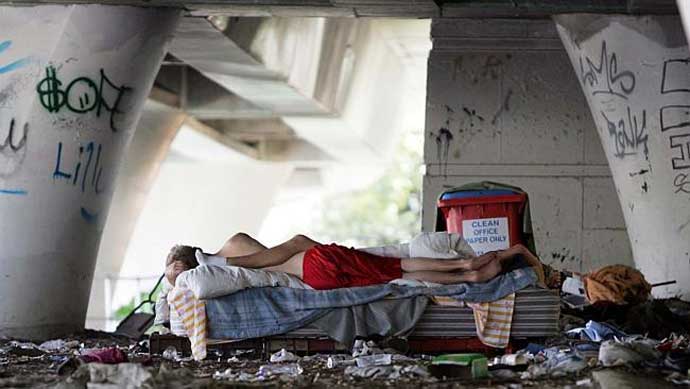 A new pilot initiative between homeless organisations, hospitals and the Queensland Government has improved health and housing outcomes for Brisbane’s rough sleepers while delivering savings of more than $2 million by preventing unnecessary and expensive hospital presentations and admissions.
A new pilot initiative between homeless organisations, hospitals and the Queensland Government has improved health and housing outcomes for Brisbane’s rough sleepers while delivering savings of more than $2 million by preventing unnecessary and expensive hospital presentations and admissions.
The Pathways Hospital Admission and Discharge Pilot Project – a joint three-year initiative between Micah Projects, St Vincent’s Private Hospital Brisbane, Mater Health Services, and funded by the Queensland Government – has seen Emergency Department (ED) presentations, ambulance callouts and hospital inpatient stays among homeless people plummet in its first 12 months by organising ongoing care and support prior to their discharge from hospital.
Karyn Walsh, the CEO of Micah Projects, said the results show that embedding nurses into social services works.
“Pathways is a game-changer for Queensland, as well as for all governments and organisations around Australia that develop policies or deliver programs to help homeless people,” said Ms Walsh.
“Most inner city hospitals across Australia encounter the same challenge: meeting the health needs of very vulnerable homeless people while also discouraging unnecessary and expensive hospital presentations and admissions – particularly to EDs – for often minor ailments.
“What Pathways does is very straightforward but effective. It fills the gap that exists between hospitals and housing and other homeless service providers. So, instead of vulnerable rough sleepers being discharged from hospital without any post-care co-ordination – only to return days or weeks later with another illness or ailment – the Pathways team is brought in to assist.
“Pathways works with the hospital and homeless person to plan their discharge and coordinate any further healthcare they might need – such as making and keeping GP appointments.
“By making sure a homeless person’s health is attended to and maintained – and also by linking them with housing support and other services – our team of community nurses and non-clinical staff has had a dramatic impact.”
Over its first 12 months, Pathways has assisted 130 people, 88 on a long-term, ongoing basis.
While the cost of providing the service has been around $280,000, the program’s cost-benefit analysis shows it has saved Queensland taxpayers $2.14 million (net benefit).
Among Pathways’ homeless participants there has been a 76% reduction in ED visits, an 83% drop in ambulance callouts, and a 76% reduction in inpatient stays.
Cheryle Royle, the CEO of St Vincent’s Private Hospital Brisbane – which provides Pathways’ community nurses – said the program not only delivered better health outcomes for its participants but improvements in a range of other important areas.
“Only one quarter of Pathways participants were engaging with community services at the time they entered the program. At their exit, that figure had climbed to 98%,” said Ms Royle.
“Similarly, only 69% of participants were connected with a GP. By the time they left the program, that figure had jumped to 93%.
“At their point of exit from Pathways, not one single participant was sleeping rough.
“What makes these achievements even more significant is that these are some of the most vulnerable members of our community: rough sleepers, couch surfers, people in short-term shelters or people identifying ‘hospital’ as their accommodation type.
“The average period of homelessness for participants is more than 2 years. Three-quarters have drug and alcohol issues, while a similar number have a mental health condition. Rates of chronic illness – such as heart disease, asthma, liver disease, hepatitis, emphysema or diabetes – are high.
“Given the nature of the serious challenges facing the group, we’re extremely pleased to see such positive early results after Pathways’ first 12 months.”


